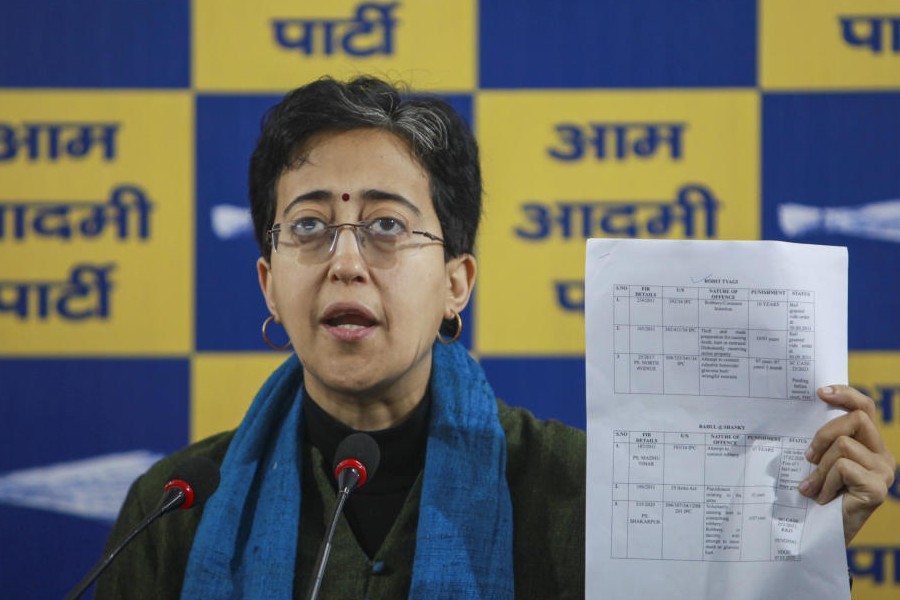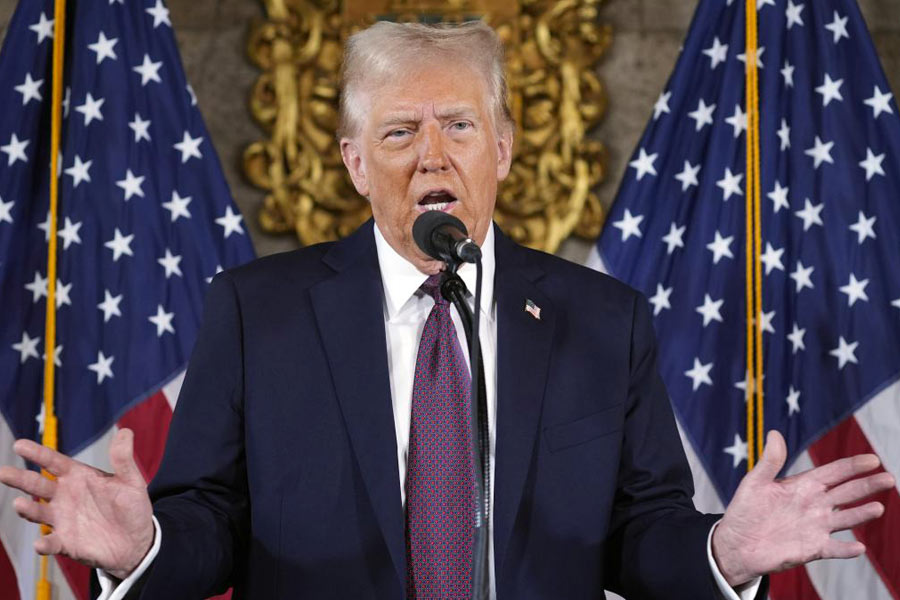Take pride
Sir — Instances of autowallahs in Karnataka bickering with passengers about not speaking in Kannada are not uncommon. But this time, it was the Bengali singer, Iman Chakraborty, who told off a member of the audience who requested her to not sing Bengali songs at a corporate event in the state. While her stance is somewhat extreme, Chakraborty’s support for the Bengali language is admirable. With the state government’s neglect for Bengali-medium schools and the resultant amnesia regarding the language, Bengali artists should come forward and endorse their mother tongue.
Sahana Dasgupta, Calcutta
Fresh start
Sir — The Centre has appointed Sanjay Malhotra, a former revenue secretary, as the 26th governor of the Reserve Bank of India (“Malhotra named RBI governor”, Dec 10). The new governor has cordial ties with the Centre, especially the Union finance minister. Malhotra now faces the same challenge as his predecessor, Shaktikanta Das, of balancing economic growth, inflation, and exchange rate stability. Malhotra has to deal with regulatory reforms affecting bank lending, curb digital fraud, and address the mis-selling of retail financial products like insurance. He also needs to implement key regulatory changes: mandating that banks make provisions for bad loans based on expected credit losses is one such reform. The RBI is under pressure to curb online financial fraud as well.
Khokan Das, Calcutta
Sir — The Union government has been quick to appoint Sanjay Malhotra as the new RBI governor, just after Shaktikanta Das’s six-year term ended. Throughout his career, Malhotra has served across diverse sectors including power, finance, taxation, information technology and mines. Previously, he held the position of secretary in the department of financial services under the ministry of finance.
The governor heads the RBI and plays a central role in formulating, implementing and monitoring monetary policies. The RBI chief also facilitates the flow of credit to the rural and agricultural sectors as well as various micro, small and medium enterprises. One hopes that Malhotra will carry out his duties successfully.
Dimple Wadhawan, Kanpur
Sir — Shaktikanta Das helmed the RBI two years after the Centre’s foolhardy and eccentric step of demonetisation, which hit the rural economy badly. Following that, in 2020, the Covid-19 lockdown caused a further crisis in the Indian economy. Das thus had to shoulder a fair share of storms during his role as the RBI governor.
The Narendra Modi-led government has been at loggerheads with Das over repo rates and inflation. Das had, at the risk of irking the ruling party, spoken against inflation. One wonders why Das was not offered another extension.
Mangal Kumar Das, South 24 Parganas
Sir — Sanjay Malhotra, who has been appointed the new governor of the RBI, has previously indicated that his priority will be to stabilise the Indian economy, which currently deals with many challenges because of population density, unemployment and poverty. Malhotra has his task cut out and must tackle these burning issues.
Jayanta Datta, Hooghly
High honour
Sir — India’s veteran ecologist and nature scientist, Madhav Gadgil, has been named as one of the six ‘Champions of the Earth for 2024’ by the United Nations Environment Programme. He is known for his pioneering work in the ecologically fragile Western Ghats region, which is a unique global biodiversity hotspot. Gadgil made an extensive study on the Western Ghats region and chaired the Western Ghats Ecology Expert Panel in 2011. The panel’s report, popularly known as the Gadgil report, recommended in 2011 that the entire hill range be declared an ecologically-sensitive area and that a ban be put on mining, quarrying, industries, new thermal power plants, hydropower projects, and large-scale wind energy projects in the area.
Gadgil’s bold recommendations faced opposition from many state governments, political bigwigs, industries and local communities. Gadgil’s research has helped protect marginalised people, promote community-driven conservation of ecosystems and influence policymaking at the highest level.
M. Pradyu, Kannur
Helpful policy
Sir — The West Bengal government has introduced a much-needed welfare scheme, Bina Mulya Samajik Suraksha Yojana, for non-workers living in the tea belt of North Bengal (“Govt cash scheme for tea gardens’ non-workers”, Dec 11). The scheme covers both young and old people and will provide compensation for accidental deaths and disabilities because of illness or an accident. It has already started enrolling people in Alipurduar, which has 61 tea estates. The government has proposed to introduce the BMSSY in other tea-producing districts of the state. It is expected that this scheme will increase the vote bank of the Trinamool Congress government.
Shyamal Thakur, East Burdwan











